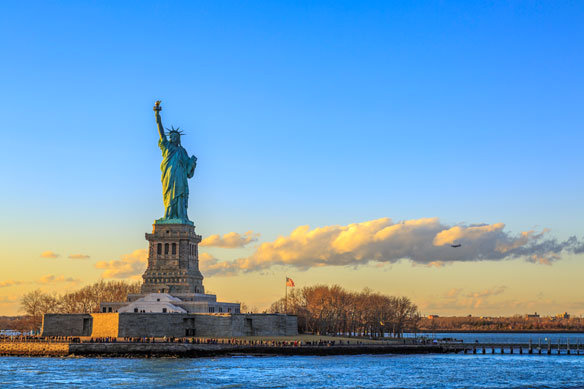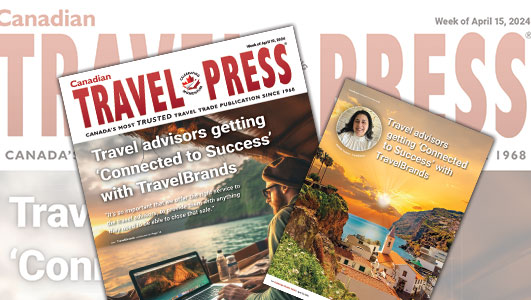Hey Mr. Postman, Why’s It Taking Such A Long, Long Time

Make safely restarting U.S.-Canada travel an immediate priority.
That’s the message in a joint letter from ACTA president, Wendy Paradis and ASTA president and CEO, Zane Kerby to Canada’s Minister of Transport, Omar Alghabra and Minister of Health, Patty Hajdu and US Secretary of State, Antony Blinken and US Secretary of Homeland Security, Alejandro Mayorkas
Paradis and Kerby write:
“We are writing on behalf of our trade associations – the American Society of Travel Advisors (ASTA) and Association of Canadian Travel Agencies (ACTA), respectively – as well as the close to 180,000 people who work at travel agencies on both sides of the border to respectfully request that you make safely restarting U.S.–Canada travel an immediate priority.”
ACTA’s and ASTA’s leaders explain that:
“In normal times, travel agencies – online, “brick and mortar” and many hybrid business models in between – play a critical role in the North American travel and tourism industry. In 2019, travel agencies sold the majority of airline tickets in the U.S. – close to 830,000 air tickets per day in 2019 – as well as two-thirds of cruises and 68% of tour packages.”
“According to the latest data from the U.S. Census Bureau, there are close to 15,000 retail travel agency locations in the U.S. employing over 108,000 people, plus an additional 60,000 self-employed travel advisors.”
“On the Canadian side, in 2019, there were over 4,300 storefront travel agency locations across the country and another 10,000 home-based travel agency businesses, with a total of almost 24,000 people working as travel advisors – employees and independent contractors.”
“The vast majority of these businesses (98%) are small according to both the U.S. and Canadian Small Business Administration/ Ministry’s size standards, and over two-thirds in the U.S. and three-quarters in Canada are owned and operated by women.”
Paradis and Kerby point out that:
“Due to the coronavirus (COVID-19) pandemic, this business (and any revenue associated with it) has come to an almost complete halt and has remained there since March 2020. Government action – in North America and beyond – has played a central role in this state of affairs.”
“The many government restrictions travel advisors have had to contend with while struggling to keep their businesses alive for the past 15 months include the European Union’s ban on most inbound travelers, the U.S. Centers 2 for Disease Control and Prevention’s (CDC) “No Sail Order” effectively halting cruise ship travel and U.S. State Department and CDC guidance against international travel of any kind.”
“In Canada, the government has advised Canadians not to travel outside Canada except for essentials reasons and imposed a cruise ban in effect until February 2022. Currently, all Canadians flying outside of the country are also mandated to quarantine at the government-approved hotel upon their return, with exceptions to fully-vaccinated Canadians effective early July.”
“To this list, we must add the closure of the U.S.-Canada border to all but essential travel since March 2020 and an almost-total cessation of travel between the two countries, each of whom was the number one country source of travelers for the other before the pandemic.”
Paradis and Kerby also make it clear that:
“As a result of these restrictions, average travel agency business income in the U.S. was down 82% in 2020 as compared to 2019 according to ASTA member surveys. In Canada, with some of the strictest travel restrictions in the world, travel agent revenue was down 95% in 2020 compared to 2019, and over 800 storefront travel agencies have now had to close permanently. And due to industry economics (i.e. commission payment schedules), there will be a substantial time lag between a return of travel bookings and a corresponding return of business income – an anticipated average of eight months’ delay.”
The two association presidents continue:
“While securing additional financial relief for our members from our respective governments remains the top priority for both associations, responsibly reopening travel between our two great countries is a critical needed step in order for meaningful recovery of the travel agency sector to occur.”
“We know that you are aware of the urgency of this situation and that discussions have been underway for many months toward a solution, and note that a template for doing so recently became available in the form of a COVID-19 Testing and Screening Expert Advisory Panel (Expert Panel) report, presented to the Canadian government on May 28. The Expert Panel was convened by the Canadian federal government to provide independent, science and data-driven recommendations on testing, border restrictions and quarantine measures, which included eliminating quarantine for fully vaccinated travellers, implementing changes to testing and screening and eliminating the hotel quarantine policy.”
Paradis and Kerby write:
“We stand ready to work with you and your staff to develop a plan to clearly spell out how and when we will restart travel between Canada and the U.S., with the objective of releasing it prior to June 21, when the existing Canadian border measures are set to potentially be renewed.”
“Thank you for considering our views on this critical issue. While it will take several years for our part of the travel industry to return to health, taken together with the urgently-needed additional relief funding from our legislatures, we believe that safely reopening U.S.-Canada travel will help speed the recovery and put travel agencies in a position to serve the traveling public once this crisis passes.”


